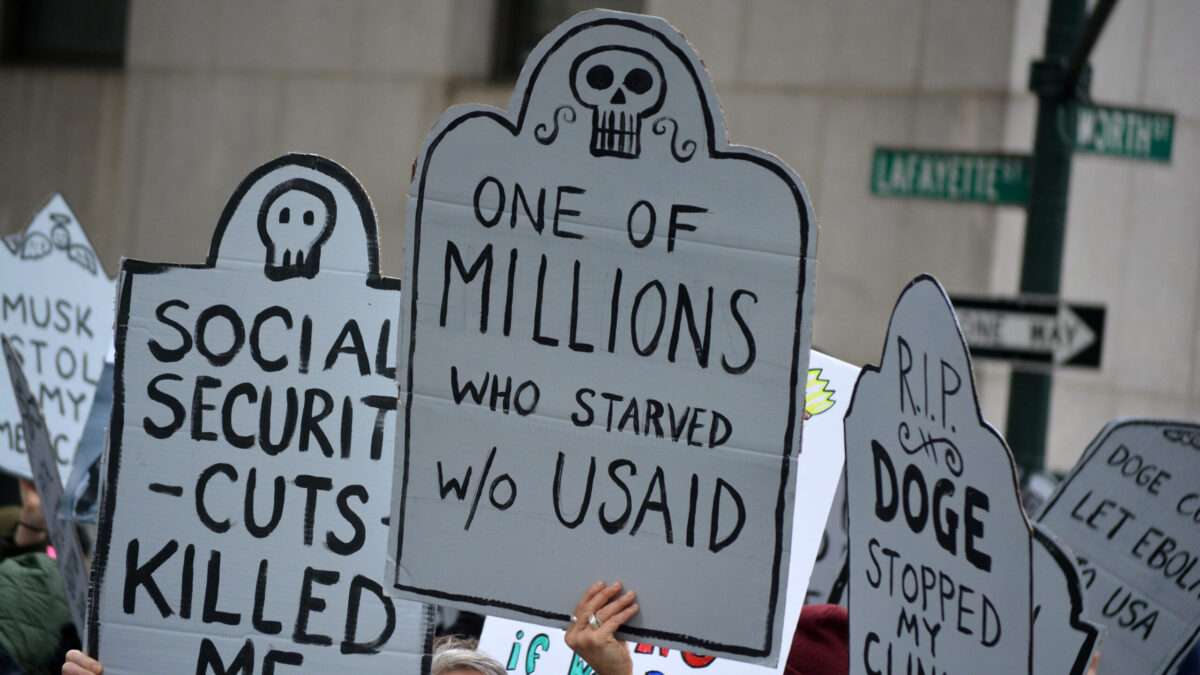UPDATE: A controversial new study claims the U.S. Agency for International Development (USAID) has saved 90 million lives globally from 2001 to 2021, igniting intense debate over its validity. Researchers argue that average U.S. taxpayers contributed just 18 cents per day to USAID efforts, yet the implications of this claim are being scrutinized amid concerns over its accuracy and methodology.
The study, coauthored by James Macinko of UCLA and published in the prestigious journal The Lancet, posits that without USAID funding, an estimated 14 million additional deaths could occur by 2030 if current funding cuts persist. Critics are questioning the study’s statistical integrity and whether the claimed lives saved truly stem from USAID efforts.
In a recent interview with NPR, Macinko stated, “We found that the average taxpayer… had prevented up to 90 million deaths around the world.” However, experts are now challenging this assertion, with many suggesting the analysis lacks common sense and fails to account for the broader context of global mortality trends.
The backdrop of this claim includes a significant decline in worldwide mortality since 2001, as reported by the United Nations. The UN noted that there were 52.43 million deaths in 2001, declining steadily in subsequent years. Critics argue that attributing the entirety of this improvement to USAID is implausible, especially given that the majority of mortality reduction—approximately 47 million lives—occurred in countries like China, which received minimal USAID funding (73 cents per capita annually).
The study’s methodology has come under fire. Critics assert that it misapplies regression analysis, a common academic tool that shows correlation but not causation. The authors may have erroneously credited USAID for improvements while ignoring other critical factors, including advances in public health and economic growth. Furthermore, they have been criticized for excluding years during which USAID was associated with increased mortality rates, raising questions about the integrity of their data.
Experts like Brooke Nichols, an infectious disease modeler from Boston University, praised the study’s intent but also acknowledged its flaws. “Putting numbers to the lives that could be lost if funding isn’t restored does something very important,” she stated, but the lack of robust evidence leaves significant room for doubt.
The implications are significant. If the study’s findings are accurate, it raises dire concerns about the potential fallout from ongoing budget cuts to USAID under the Trump administration. However, the credibility of such claims is critical for informing policy decisions that could affect millions of lives worldwide.
Going forward, scrutiny of USAID and its funding will likely intensify. As discussions about foreign aid continue, both supporters and critics will need to grapple with the broader implications of this study and the data it presents. The urgency of the situation cannot be overstated; lives are at stake, and the debate surrounding USAID’s impact is far from settled.
Stay tuned for more updates as this story develops, and consider the critical role that accurate data plays in shaping our understanding of global health initiatives.







































































